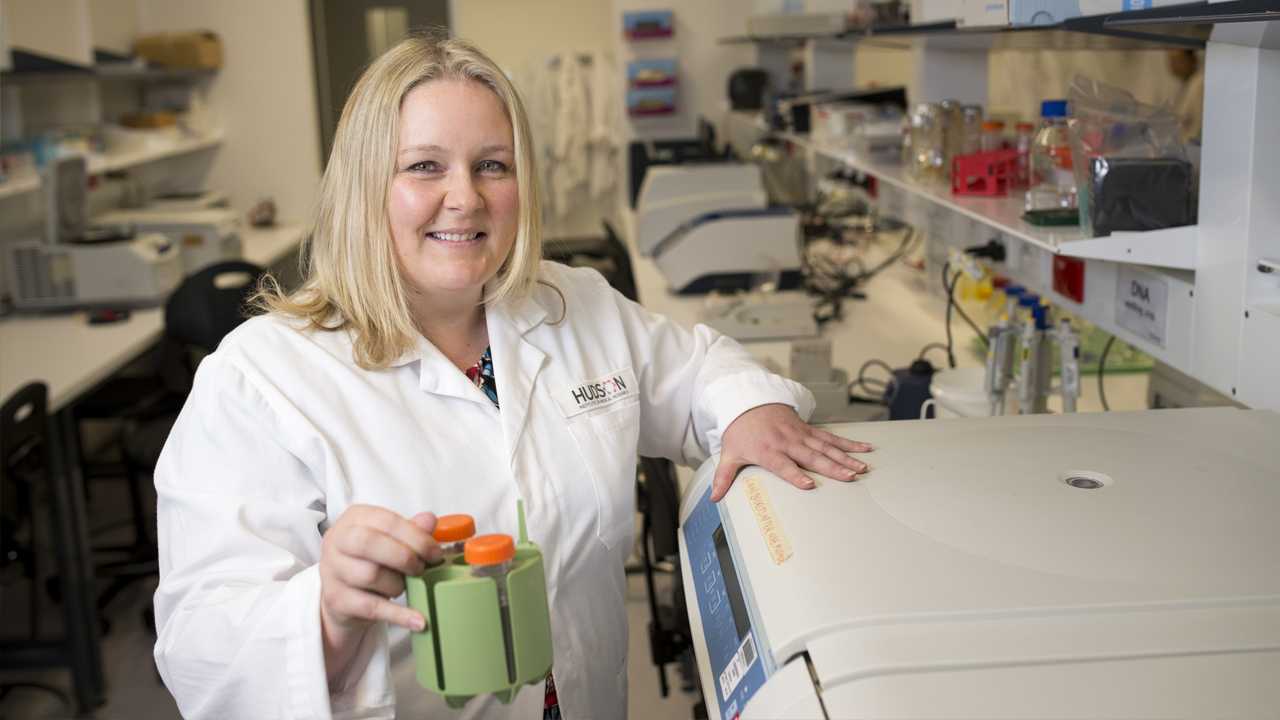T cells open the door to potential immune therapies
By Rob Clancy, staff writer. Reviewed by Associate Professor Kate Lawlor

Keeping T cells active, but not too active, could be the key to new potential immune therapies, according to the latest research.
While T cells play a critical role in the immune system by protecting our body against infection and cancer, regulation of T cell activity is necessary to prevent excessive inflammation and damage to healthy tissue.
A team of researchers including Hudson Institute’s Associate Professor Kate Lawlor is investigating how the T cells’ life and death is controlled and what molecular mechanisms are at play in the regulation of the T cells’ activity.
In a study published in the journal Cell Death and Disease, they worked with mucosal associated invariant T (MAIT) cells – a type of T cells that play a crucial role in protecting our bodies against bacterial infections.
Potential immune therapies to control inflammation
The researchers found that MAIT cells have a unique survival and death mechanism compared to other types of T cells.
They discovered that a protein, called RIPK3 (Receptor-Interacting Protein Kinase 3), plays a crucial role in regulating MAIT cell numbers, but the same effect was not seen for other T cell populations.
University of Melbourne’s Dr Timothy Patton, a Research Officer at the Doherty Institute and a lead author of the study, explained.
“The RIPK3 protein controls both inflammation and cell death activity. It is a master ‘decision maker’ controlling if a cell will die, and how much inflammation the cell will drive in both its life and death.”
“In MAIT cells, but not other T cells, RIPK3 plays more of a ‘pro-death’ role restricting the accumulation of MAIT cells normally.”
New therapeutic solutions
Understanding more about how MAIT cells work opens the door to new therapeutic solutions to help fight infectious diseases.
“These findings suggest RIPK3 is a good target to develop therapies that can either increase or decrease the activity of MAIT cells,” said University of Melbourne’s Associate Professor Alexandra Corbett, Laboratory Head at the Doherty Institute and a senior author of the paper.
“This could be useful for treating conditions where MAIT cell activity needs to be reduced, such as autoimmune diseases, or where it needs to be increased, such as bacterial infections.”
This research was carried out by a collaborative team of researchers at the Doherty Institute, Hudson Institute for Medical Research and the Walter and Eliza Hall Institute.
Collaborators | Doherty Institute, WEHI
About Hudson Institute
Hudson Institute’ s research programs deliver in three areas of medical need – inflammation, cancer, women’s and newborn health. More
Hudson News
Get the inside view on discoveries and patient stories
“Thank you Hudson Institute researchers. Your work brings such hope to all women with ovarian cancer knowing that potentially women in the future won't have to go through what we have!”





